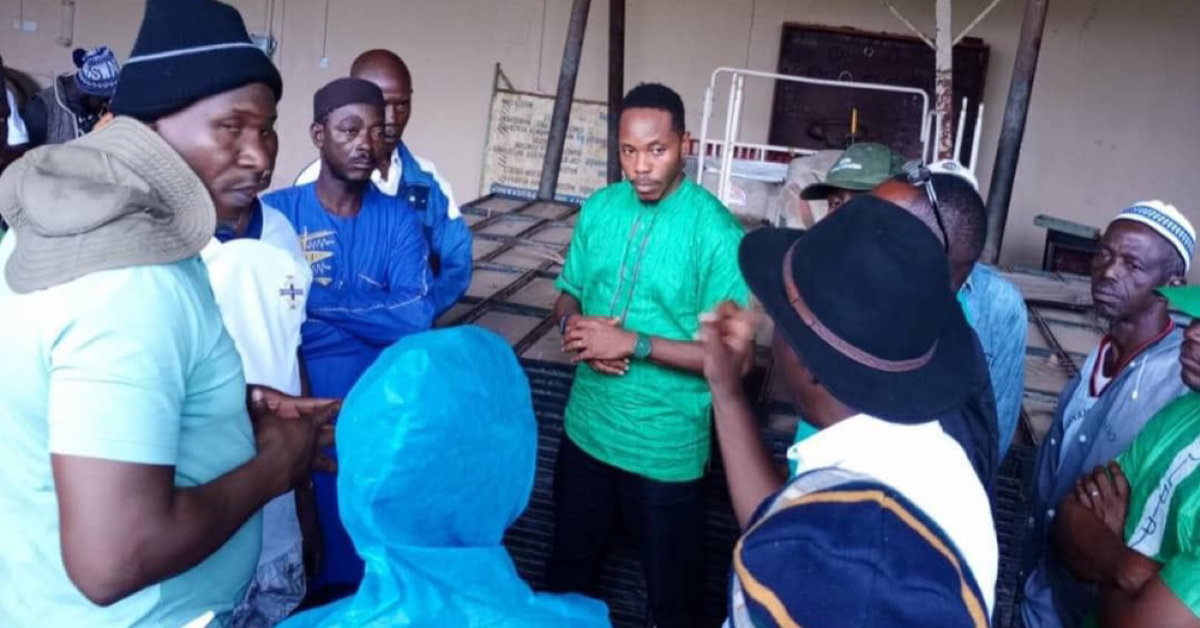Chief Minister Dr. David Moinina Sengeh visited Kambia District on a mission to monitor trade at the Guinea border and assess the progress of the Feed Salone Farms initiative.
During his visit, Dr. Sengeh joined First Lady Fatima Bio, district chairmen, and national officers of the Sierra Leone People’s Party (SLPP) at a governance and service delivery workshop. This workshop, held in the district where the SLPP was founded, focused on strategic governance and service delivery improvements.
In his address, Dr. Sengeh updated attendees on the SLPP Constitution Review process. He emphasized the party’s historical ties to Kambia and its ongoing commitment to returning and engaging with the community. “I spent the day in Kambia district today, where I first joined Madam First Lady, all the District Chairmen, and some National Officers of the great SLPP in a workshop focused on strategies of governance and service delivery,” Dr. Sengeh stated.
Following the workshop, Dr. Sengeh traveled to Gbalamuya to meet with local staff and discuss critical issues such as security, trade, and customs. A key topic was the need for a scanner to inspect trucks, which Dr. Sengeh identified as a major requirement for improving border operations. Additionally, he addressed the recent seizure of goods from traders attempting to smuggle palm oil across the border. Dr. Sengeh highlighted the importance of citizen responsibility in national development, urging everyone to contribute positively.
In Kobia, a significant hub for the Feed Salone project, Dr. Sengeh was accompanied by the Deputy Minister of Water Resources and Sanitation and leaders from the Ministry of Agriculture. They held discussions with local leaders and farmers about the challenges they face, including machine shortages and delayed fertilizer supplies. Dr. Sengeh promised to accelerate the delivery of necessary resources and take unresolved issues to the appropriate officials.
The Feed Salone project has seen the planting of 200 hectares of rice, as well as peppers and vegetables. Dr. Sengeh expressed concern over traders providing farmers with money to buy rice for export to other countries upon harvest. To counteract this, the government has allocated $2 million to support local farmers’ labor and other activities, aiming to break this cycle and encourage the sale of rice within Sierra Leone.
“We have installed machines here for processing and warehouses to store grains. While lots more needs to be done, we also see great progress,” Dr. Sengeh remarked. He acknowledged the dedication of ministry officials, volunteers, and partners, and stressed the role of local chiefs and stakeholders in ensuring the food grown in Sierra Leone remains in the country, strengthening institutions like the Sierra Leone Produce Marketing Company (SLPMC).











